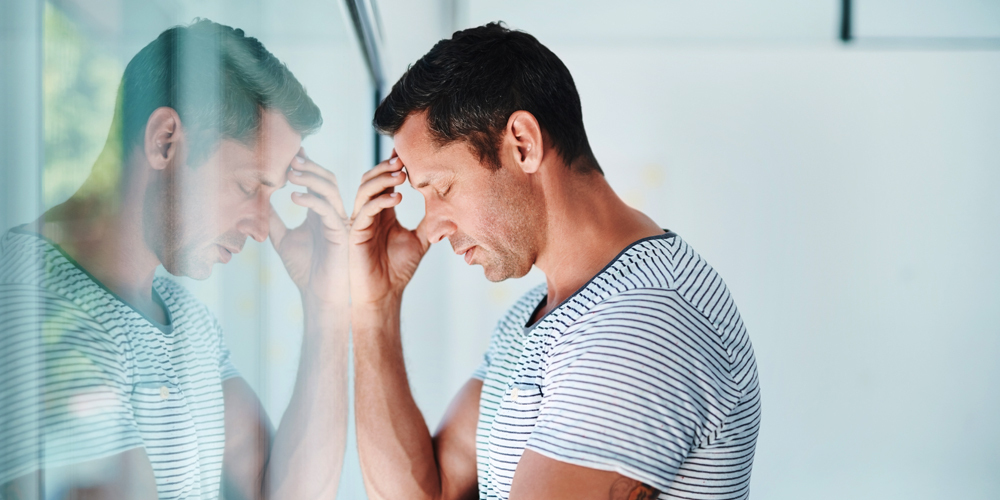Proudly serving Washington State.
Tips for Managing Anxiety & Stress During the Coronavirus Epidemic
Apr. 23, 2020.

Stress and Coping
The outbreak of coronavirus disease 2019 (COVID-19) may be stressful for people. Fear and anxiety about a disease can be overwhelming and cause strong emotions in adults and children. Coping with stress will make you, the people you care about, and your community stronger.
Everyone reacts differently to stressful situations.
How you respond to the outbreak can depend on your background, the things that make you different from other people, and the community you live in.
People who may respond more strongly to the stress of a crisis include
Older people and people with chronic diseases who are at higher risk for COVID-19
Children and teens
People who are helping with the response to COVID-19, like doctors and other health care providers, or first responders
People who have mental health conditions including problems with substance use
If you, or someone you care about, are feeling overwhelmed with emotions like sadness, depression, or anxiety, or feel like you want to harm yourself or others you can call:
Eastside Counseling Center 425.242.6267
Substance Abuse and Mental Health Services Administration's (SAMHSA's) Disaster Distress Helpline: 800-985-5990
911
Stress during an infectious disease outbreak can include
Fear and worry about your own health and the health of your loved ones
PTSD symptoms may emerge that related to survival and/or threat
Changes in sleep or eating patterns
Difficulty sleeping or concentrating
Worsening of chronic health problems
Increased use of alcohol, tobacco, or other drugs
People with preexisting mental health conditions should continue with their treatment and be aware of new or worsening symptoms. Additional information can be found at the Substance Abuse and Mental Health Services Administration website https://www.samhsa.gov.
Taking care of yourself, your friends, and your family can help you cope with stress. Helping others cope with their stress can also make your community stronger.
Things you can do to support yourself
Take breaks from watching, reading, or listening to news stories, including social media. Hearing about the pandemic repeatedly can be upsetting.
Take care of your body. Take deep breaths, stretch, or meditate. Send healing to yourself, to your loved ones and to the world for 1 minute a day.
Try to eat healthy, well-balanced meals, exercise regularly, stay well hydrated and rested, and avoid alcohol and drugs.
Try to do some other activities you enjoy. Pick up an old hobby or find a new one.
Connect with others. Talk with people you trust about your concerns and how you are feeling.
Practice good sleep hygiene by creating an evening routine/ritual such as making a cup of herbal tea (chamomile, lavender, etc.), take a bath, read a book, journal, avoid screens ideally for 3 hours but minimally an hour, use blue-blocking glasses, ensure your room is as dark as possible or use a sleeping mask to increase your body's ability to make melatonin, an important hormone that facilitates deep sleep.
Normalize the fact that PTSD or previous traumas from earlier events may be triggered (even those who have done much to clear PTSD symptoms).
Be as gentle as possible with people and yourself that may be triggered, as survival responses such as fight, flight, or freeze are a normal response to traumatic events.
Practice several times a day calming the body by practicing somatic practices like Emotional Freedom Techniques, walking in nature, walking barefoot on the earth, massage therapy, aromatherapy, acupuncture, etc.
Allow the sympathetic nervous system to unwind and all the parasympathetic to calm it. Activating the parasympathetic allows a new trust and safety to develop and strengthen, and lets the brain know that it has a strategy for keeping safe.
Call your healthcare provider and a counselor if stress gets in the way of your daily activities for several days in a row.
Reduce stress in yourself and others
Sharing the facts about COVID-19 and understanding the actual risk to yourself and people you care about can make an outbreak less stressful.
When you share accurate information about COVID-19 you can help make people feel less stressed and allow you to connect with them.
https://www.cdc.gov/coronavirus/2019-ncov/faq.html
Being prepared helps reduce anxiety. The American Red Cross offers both an Emergency Checklist as well as Emergency Kits. Disaster Relief checklists are also included here.
For Parents
Children and teens react, in part, on what they see from the adults around them. When parents and caregivers deal with the COVID-19 calmly and confidently, they can provide the best support for their children. Parents can be more reassuring to others around them, especially children, if they are better prepared.
Not all children and teens respond to stress in the same way. Some common changes to watch for include:
Excessive crying or irritation in younger children
Returning to behaviors they have outgrown (for example, toileting accidents or bedwetting)
Excessive worry or sadness
Unhealthy eating or sleeping habits
Irritability and "acting out" behaviors in teens
Poor school performance or avoiding school
Difficulty with attention and concentration
Avoidance of activities enjoyed in the past
Unexplained headaches or body pain
Use of alcohol, tobacco, or other drugs
There are many things you can do to support your child
Take time to talk with your child or teen about the COVID-19 outbreak. Answer questions and share facts about COVID-19 in a way that your child or teen can understand.
Reassure your child or teen that they are safe. Let them know it is ok if they feel upset. Share with them how you deal with your own stress so that they can learn how to cope from you.
Limit your family's exposure to news coverage of the event, including social media. Children may misinterpret what they hear and can be frightened about something they do not understand.
Try to keep up with regular routines. If schools are closed, create a schedule for learning activities and relaxing or fun activities.
Be a role model. Take breaks, get plenty of sleep, exercise, and eat well. Connect with your friends and family members.
For Responders
Responding to COVID-19 can take an emotional toll on you. There are things you can do to reduce secondary traumatic stress (STS) reactions:
Acknowledge that STS can impact anyone helping families after a traumatic event.
Learn the symptoms including physical (fatigue, illness) and mental (fear, withdrawal, guilt).
Allow time for you and your family to recover from responding to the pandemic.
Create a menu of personal self-care activities that you enjoy, such as spending time with friends and family, exercising, or reading a book.
Take a break from media coverage of COVID-19.
Ask for help if you feel overwhelmed or concerned that COVID-19 is affecting your ability to care for your family and patients as you did before the outbreak.
Learn more tips for taking care of yourself during emergency response.
For people who have been released from quarantine:
Being separated from others if a healthcare provider thinks you may have been exposed to COVID-19 can be stressful, even if you do not get sick. Everyone feels differently after coming out of quarantine. Some feelings include:
Mixed emotions, including relief after quarantine
Fear and worry about your own health and the health of your loved ones
Stress from the experience of monitoring yourself or being monitored by others for signs and symptoms of COVID-19
Sadness, anger, or frustration because friends or loved ones have unfounded fears of contracting the disease from contact with you, even though you have been determined not to be contagious
Guilt about not being able to perform normal work or parenting duties during the quarantine
Other emotional or mental health changes
Children may also feel upset or have other strong emotions if they, or someone they know, has been released from quarantine.
Generalized Anxiety Disorder (GAD)
GAD affects 6.8 million adults, or 3.1% of the U.S. population, yet only 43.2% are receiving treatment.
Women are twice as likely to be affected as men.
GAD often co-occurs with major depression.
Panic Disorder(PD)
PD affects 6 million adults, or 2.7% of the U.S. population.
Women are twice as likely to be affected as men.
Social Anxiety Disorder (SAD)
SAD affects 15 million adults, or 6.8% of the U.S. population.
SAD is equally common among men and women and typically begins around age 13.
According to a 2007 ADAA survey, 36% of people with social anxiety disorder report experiencing symptoms for 10 or more years before seeking help.
Specific Phobias
Specific phobias affect 19 million adults, or 8.7% of the U.S. population.
Women are twice as likely to be affected as men.
Symptoms typically begin in childhood; the average age-of-onset is 7 years old.
Treatment For Anxiety
Psychotherapy or “talk therapy” can help people with anxiety disorders. To be effective, psychotherapy must be directed at the person’s specific anxieties and tailored to his or her needs.
Contact Hours
Monday - Friday
9:00 am - 5:00 pm
Call Us
Kirkland: (425) 242-6267
Bellevue: (425) 590-9419
Our Offices
Kirkland Office
625 4th Ave, Suite 203
Kirkland, WA 98033
(425) 242-6267
Bellevue Office
4122 Factoria Blvd SE, Suite 405
Bellevue, WA 98006
Email Us
Helpful Links
© 2023 Eastside counseling center
© 2023 Eastside counseling center
Privacy Policy
Privacy Policy


